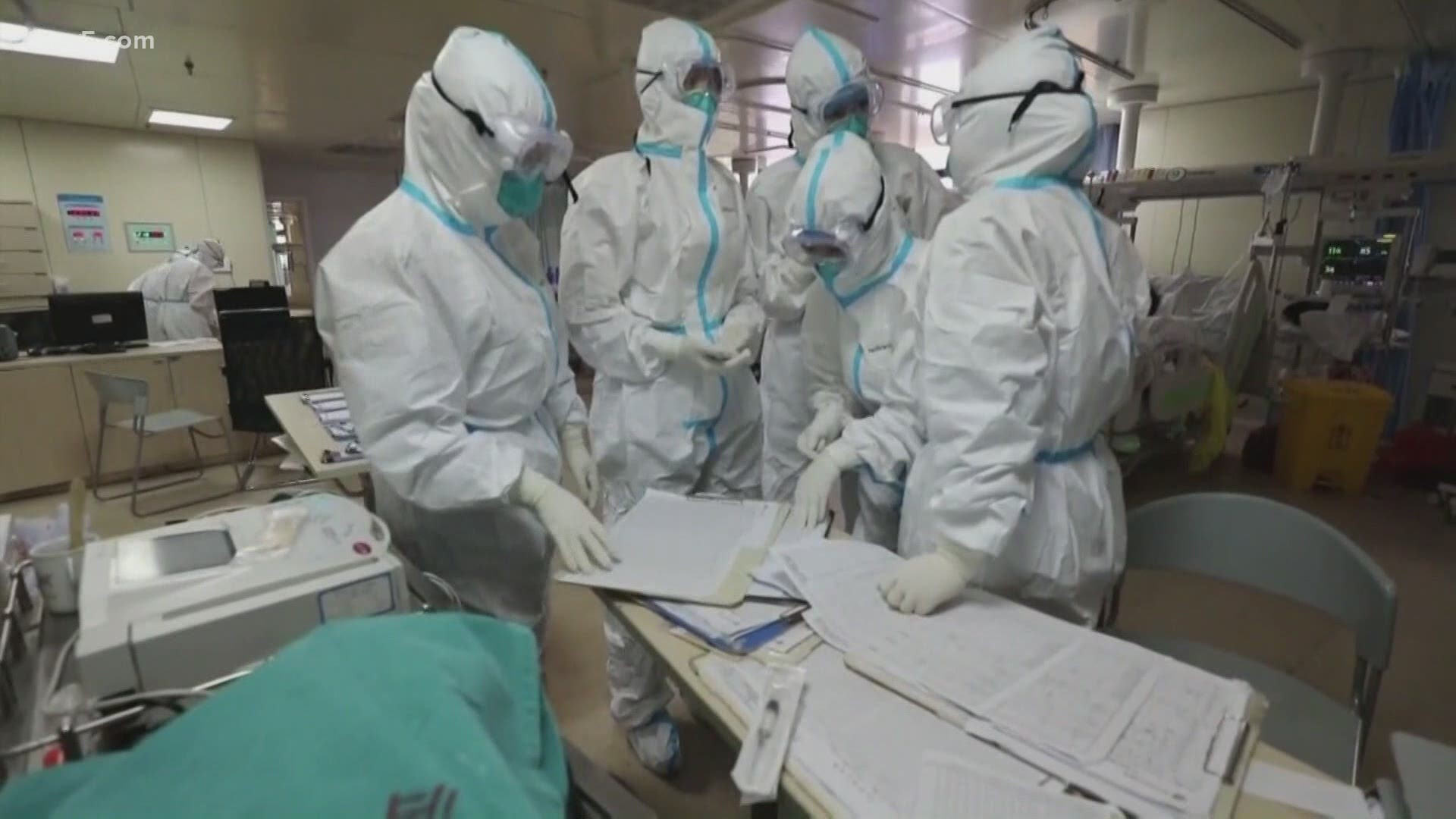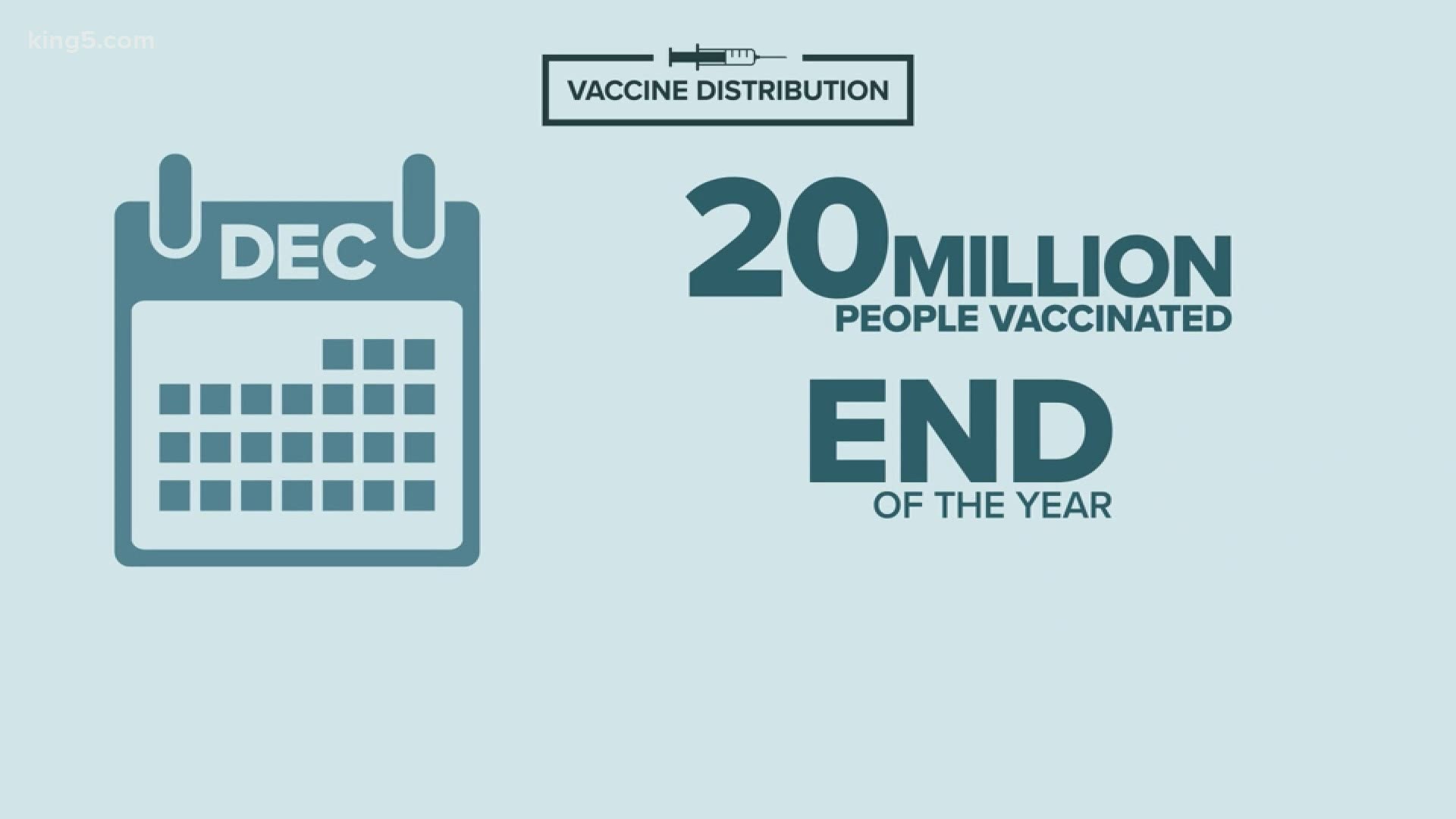SEATTLE — Around 54% of all American adults know someone who has been hospitalized or someone who has died from coronavirus, according to a new Pew Research Poll. That's a sharp increase from the 20% who knew someone impacted back in May.
Dr. Elizabeth Wako, Chief Operating Officer at Swedish First Hill, says about one in every eight patients at the hospital has COVID-19.
"Our beds at baseline are already almost at capacity, so this is putting us over the edge,” said Wako, who added that, at the moment, the hospital is able to manage the caseload.
"I do kind of have a pit in my stomach, though, when I think about next week and the week after, because that's really where we're going to see the effects of Thanksgiving,” she said.
Across the country, hospital admissions for coronavirus are soaring. The Institute for Health Metrics and Evaluation projects the number of ICU beds needed will surpass what is available in Washington state by mid-January with the problem growing worse in February.
Wako explains how care for the very sick requires complex work.
“They stay on their stomachs for 16 hours. We turn them every four hours. To flip a patient, to get a patient prone, it takes almost half the staff on the unit to be able to do that safely,” Wako said.
Staffing is an ongoing issue. With coronavirus more prevalent in the community, more healthcare workers are getting exposed and needing to quarantine. It is difficult to find temporary staff to work those shifts because demand for healthcare workers is high across the country.
Hospitals are turning to the staff that are available, asking them to work additional hours.
This week, the CDC director warned winter could be the most difficult time in the public health history of this nation.
“It's accurate,” Wako said. “We will face our greatest challenges in acute care just trying to manage these patients. It's incredibly difficult.”


